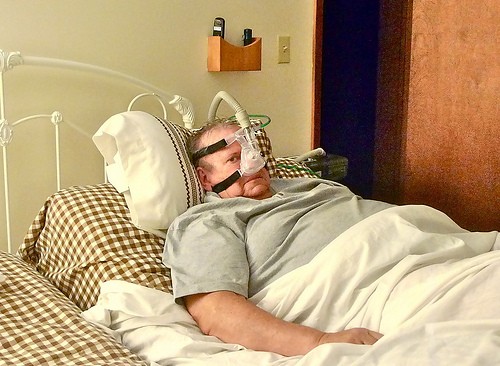
Suffering from the common sleep disorder, sleep apnea, can increase the risk of pneumonia, according to a new study from Taiwan.
Nearly 45 percent of the world's population is affected with different sleep-related problems like insomnia, restless legs syndrome (RLS), sleep deprivation and sleep-related respiratory disturbances such as obstructive sleep apnea (OSA). Sleep apnea (derived from a Greek word meaning "without breath") is a disorder that causes abnormal stoppage of breathing while sleeping. Symptoms of the disorder include morning headaches, depression, problems to memorize and concentrate, sore throat and tendency to wake up frequently for urination. It has been linked to a wide range of deadly conditions including heart disease, strokes, diabetes, obesity and high blood pressure.
The new study, reported in Canadian Medical Association Journal (CMAJ) monitored 34,100 people for 11 years. Of the total participants, 6,816 suffered from sleep apnea and were part of the Taiwan National Health Insurance Research Database. Within the first five years of the study, 2,757 people developed pneumonia - 638 people in the sleep apnea group (9.36 percent) and 2,119 (7.77 percent) in the control group (27,284). Results showed a 1.20-fold increased risk of pneumonia associated with sleep apnea.
"This study showed that sleep apnea is an independent risk factor for incident pneumonia," the authors, while interpreting their findings, wrote. "Our results also demonstrated an exposure-response relation in that patients with more severe sleep apnea may have a higher risk of pneumonia than patients with sleep apnea of milder severity."
The aspiration risk and damaged immunity involved with sleep apnea may be contributing to this occurrence, researchers said. Importantly, the pneumonia risk went up considerably with CPAP therapy, a common non-invasive procedure used to treat sleep apnea. Continuous positive airway pressure (CPAP) is a machine that delivers air at a predetermined pressure through a mask placed over the nose.
The CPAP machine affect the process of coughing out and spitting out sputum from the respiratory passages, thus leading to pulmonary aspiration. Authors pointed out an equal risk with humidifier. Humidifier can contribute to bacterial contamination and thus contribute to pneumonia.
"As well, for patients receiving CPAP therapy, every effort should be made to minimize the risk of pneumonia, such as enhanced cleaning of CPAP tubing and humidifier, and vigilance if recurrent pneumonia is noted among CPAP users," the authors, wrote.
















